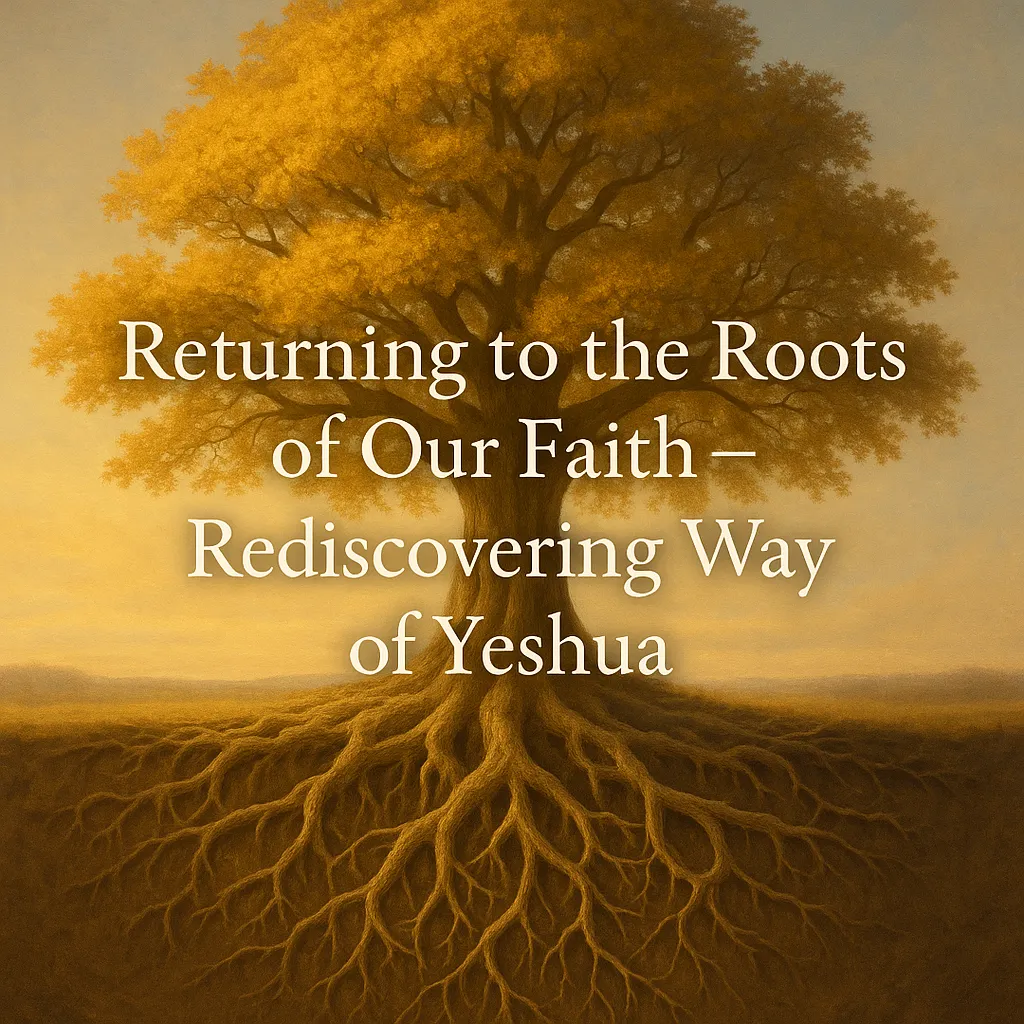
Rooted and Growing
The Painful Gift of Disillusionment: Rediscovering the Roots of Our Faith
There’s a funny thing about deception—none of us want to admit we've been deceived. At least, I know I don’t. It stings, not just because of the betrayal itself, but because it means we trusted someone—or something—and were wrong. I’ve experienced this personally, professionally, and spiritually. Time and time again, I’ve trusted people, only to find out later they were false or using me to advance their own agenda.
I expect this from those who don’t know the Lord. But when it comes from those who claim His name, who read the same Scriptures, and yet manipulate them to mislead or control—it makes me sick. I can’t wrap my mind around the necessity or justification for it.
But my dear sister said something that shifted my perspective: Maybe God was allowing this to prepare me for one of the greatest spiritual awakenings of my walk with Messiah Yeshua.
As painful as it has been, this season of unveiling has drawn me deeper into truth—and that truth has been both liberating and disorienting. The more I study, the more I realize how little I know, and how greatly I’ve been deceived—especially about the very roots of our faith.
Let me say this plainly: Jesus was a Jew. Not just ethnically, but in the way He lived. He didn’t come to establish a new religion called Christianity. He came, as He said, to fulfill the Law and the Prophets—not to abolish them (Matthew 5:17-19). His teachings didn’t remove the Law; they elevated it. He said that looking at a woman with lust was equivalent to adultery. That’s not doing away with Torah—that’s going deeper into its heart.
Yeshua (Jesus) kept the Sabbaths. He celebrated the feasts. He lived out the commandments—not legalistically, but with love and depth and devotion to the Father. He showed us that Torah wasn’t about rituals, but about relationship.
So how did we get so far off track?
A History of Distortion
In the early days of the Church, as Gentiles began to follow Jesus, something subtle—and then not-so-subtle—started to happen. The Jewish foundation of our faith was stripped away. The Jewish roots were rebranded into something more palatable for the Roman world.
The Council of Laodicea (circa 364 AD) codified these changes:
“Christians shall not Judaize and be idle on Saturday... If they are found Judaizing, they shall be shut out from Christ.” (Canon 29)
“No one shall accept unleavened bread from the Jews, or take part in their festivals.” (Canon 38)
Writers like Justin Martyr and church fathers like Augustine twisted Scripture and distanced the Church from the Sabbath, feasts, and Jewish roots—often under the banner of anti-Semitism. Pope Gregory even went so far as to call Sabbath keepers “preachers of the Antichrist.”
This was not a new gospel. This was a distortion. And sadly, it’s a legacy we’ve inherited.
More Than a Day of Worship
The Sabbath is not just a “Jewish tradition.” It was established at Creation (Genesis 2:2-3), and affirmed by Yeshua when He said, “The Sabbath was made for man, not man for the Sabbath” (Mark 2:27). It’s a gift—a holy rhythm woven into the fabric of time.
Yet history shows how deeply pagan influences shaped what we now call Christianity. Mithraism, a Roman mystery religion, celebrated December 25 as the birthday of their god, Mithra—long before Christians adopted it for Jesus. Mithras was also worshiped on Sunday, the day that eventually became the new day of worship for Christians, replacing the biblical Sabbath.
Similarities between Mithraism and early Christian practices are unnerving: Sunday worship, December 25 birthdays, communion meals, baptism rituals. These overlaps should cause us to pause and ask: Are we following Scripture, or tradition?
Time to Return
The more I’ve learned, the harder it’s been to identify myself with the term “Christian,” not because I’m ashamed of Messiah—but because the name no longer reflects the fullness of following Him in truth.
I’m not calling for legalism. I’m calling for return. A return to the Scriptures. A return to the ways of Yeshua. A return to the God of Abraham, Isaac, and Jacob.
We must stop being content with being spoon-fed doctrine and theology. We must search the Word for ourselves. Study the original language. Understand the culture, context, and covenant. Even in Jesus’ day, He rebuked the religious leaders for replacing the commands of God with the traditions of men (Matthew 15:6).
The deception runs deep. I thought I had done my due diligence—Bible college, seminary, 20 years of walking with the Lord. And yet, here I am, feeling like I’m starting over. But in that, there’s joy. There’s richness. There’s life.
Because the God of Israel has not forsaken us. In His kindness, He has grafted us in (Romans 11:17), and He is calling us back—not to religion, but to relationship rooted in truth.
A Heartfelt Note
If anything I’ve shared here has shocked or upset you, please know that was never my intention. My heart is never to cause offense or stir division, but to pursue truth, and to invite others to do the same. I know how disorienting it is when long-held beliefs are challenged—I’m still walking through that process myself.
But I also believe God honors our hunger for truth and our desire to know Him more deeply.
If anything here stirred your spirit, made you curious, or left you with questions—I’d love to connect. Let’s seek truth together. Let’s study Scripture. Let’s wrestle through it in love. You can reach out through [email protected]—and I would be honored to hear from you.
May the Lord bless you and keep you,
Kari
